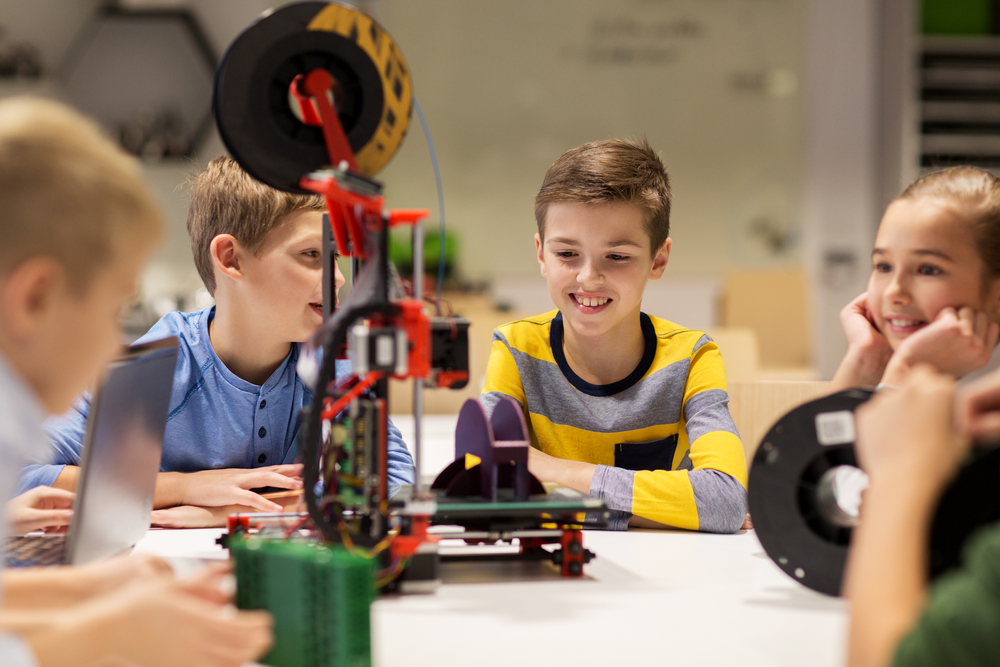Building teamwork and social skills is essential to children’s development, as these skills serve as a foundation for their interactions, relationships, and future successes. While academic learning is a crucial part of school, incorporating activities that develop social skills and teamwork abilities adds invaluable learning opportunities to the curriculum. The right school activities can foster cooperation, empathy, and effective communication. Let’s explore several engaging and effective school activities designed to encourage teamwork and social skills among kids, along with the role educational learning centers play in promoting these abilities.
Group Projects
Group projects are a classic and highly effective way to teach teamwork and social skills in schools. By working on projects in small groups, students learn to collaborate, divide tasks, and communicate ideas effectively. Group projects allow students to take on different roles within a team, encouraging each child to contribute their unique strengths. Students thrive in school activities that encourage creativity, teamwork, and hands-on learning, helping them build valuable skills for both academic and personal growth. This method also gives children the chance to practice negotiation, compromise, and active listening. Additionally, educational learning centers can support these projects by providing resources and spaces that encourage collaborative work, such as shared workspaces, reading corners, and hands-on material stations.
Example Group Projects:
– Science Fair Projects: Groups can work together on science experiments, from planning to presenting. Each student could take a specific role, like researcher, experimenter, or presenter.
– Book Clubs or Reading Groups: By discussing a book, students practice both listening and speaking skills, and get the opportunity to respectfully debate or share perspectives.
Role-Playing and Drama Activities
Role-playing activities provide an engaging way for kids to step into others’ shoes and develop empathy. In addition to building empathy, these activities foster communication skills, as students must work together to act out scenes and convey messages. Drama clubs and school plays are examples of such activities where students collaboratively plan and perform. Educational learning centers often have dedicated areas or resources, such as costume corners or theater props, that allow students to fully engage in these role-playing activities.
Types of Role-Playing Activities:
– Classroom Drama: Students act out scenes from history or literature, which helps them better understand the material and encourages teamwork.
– Conflict Resolution Scenarios: Teachers can introduce hypothetical conflicts, allowing students to practice problem-solving and negotiation skills in a controlled setting.
Cooperative Games and Sports
Cooperative games and team sports provide opportunities for students to develop social skills in a fun, dynamic environment. Unlike traditional sports where competition is emphasized, cooperative games focus on achieving shared goals. These activities teach kids about teamwork, respect, and the importance of helping others. Physical education classes or after-school clubs can be perfect settings for such activities, and educational learning centers can create spaces like sports fields or game rooms for kids to engage in these activities.
Examples of Cooperative Games:
– Scavenger Hunts: Small groups of students search for items or clues, requiring them to communicate, strategize, and cooperate.
– Relay Races with a Twist: Students can race but are required to assist one another in completing tasks, such as balancing a ball or passing an object, building trust and teamwork.
Collaborative Art Projects
Art offers a creative avenue for children to work together and communicate without the stress of competition. Collaborative art projects allow children to explore their creativity while learning about teamwork. Students can contribute to a group mural, design a poster together, or work on a large craft project that requires multiple steps and roles. Art-focused educational learning centers can support these activities by providing materials and a conducive environment for creativity and group work.
Ideas for Collaborative Art Projects:
– Class Mural: Each student can paint or draw a small part of a larger mural, symbolizing unity and teamwork.
– Themed Collages: Using magazines and craft supplies, students can create a large collage representing a concept, such as friendship or community.
Problem-Solving Challenges
Problem-solving challenges, like escape rooms or puzzle-based activities, encourage students to communicate and think critically under time constraints. These challenges require them to brainstorm, evaluate options, and make group decisions. By working together to solve complex problems, students develop resilience and adaptability, valuable skills for future academic and social situations. Educational learning centers can support these activities by providing puzzle resources, interactive learning modules, or even digital tools for virtual escape rooms or simulations.
Problem-Solving Activity Ideas:
– Classroom Escape Room: Students work in small groups to solve clues and “escape” within a certain timeframe. This promotes communication, strategic thinking, and teamwork.
– STEM Challenges: Building towers with limited materials or creating bridges out of straws encourages critical thinking, cooperation, and creativity.
Buddy Systems and Peer Mentoring
Implementing a buddy system or peer mentoring program in schools helps kids learn responsibility, empathy, and respect for others. Pairing younger students with older “buddies” encourages positive social interaction and mentorship, helping both students learn valuable social skills. Educational learning centers can support peer mentoring programs by organizing spaces where buddies can meet, study together, or participate in learning activities side by side.
Examples of Buddy System Programs:
– Reading Buddies: Older students read to younger students, which promotes literacy skills while building a bond.
– Study Buddies: Older students help younger ones with their schoolwork, teaching patience, empathy, and leadership skills.
Classroom Discussions and Socratic Seminars
Structured classroom discussions and Socratic seminars teach students how to express ideas respectfully, listen to others, and engage in productive debates. In these discussions, students learn to value diverse perspectives, build critical thinking skills, and practice emotional intelligence. Educational learning centers can provide quiet spaces or resources, like books and discussion guides, that can support these group discussions.
Examples of Discussion Activities:
– Current Events Discussions: Students discuss recent news articles, learning to express opinions respectfully and listen to differing viewpoints.
– Literature Circles: Students discuss themes or questions related to a book, fostering a love of reading and meaningful conversation skills.
Incorporating these types of school activities is essential for developing teamwork and social skills in children. By participating in group projects, role-playing activities, cooperative games, collaborative art projects, problem-solving challenges, buddy systems, and structured discussions, students learn how to communicate, empathize, and work effectively with others. Educational learning centers serve as valuable resources in this endeavor, providing the physical and educational materials necessary to facilitate these activities. Through engaging in these activities, children acquire the tools they need to navigate social settings and contribute positively to any team, laying the groundwork for a future filled with strong interpersonal skills and effective collaboration.

